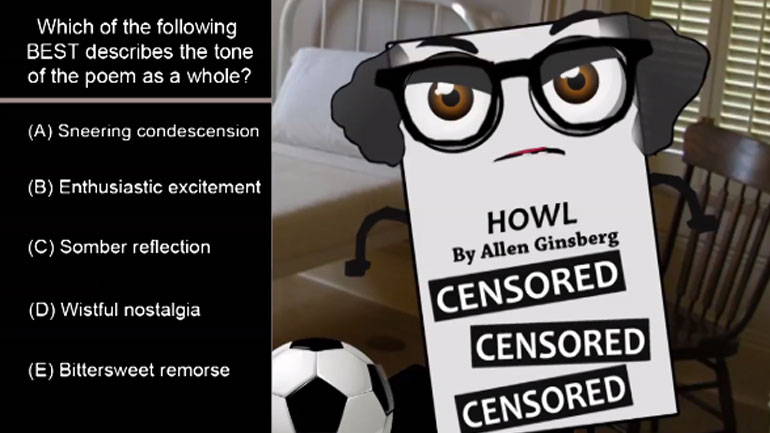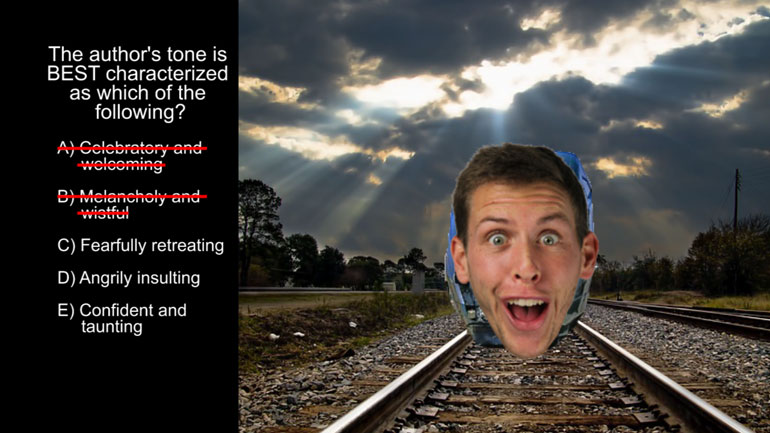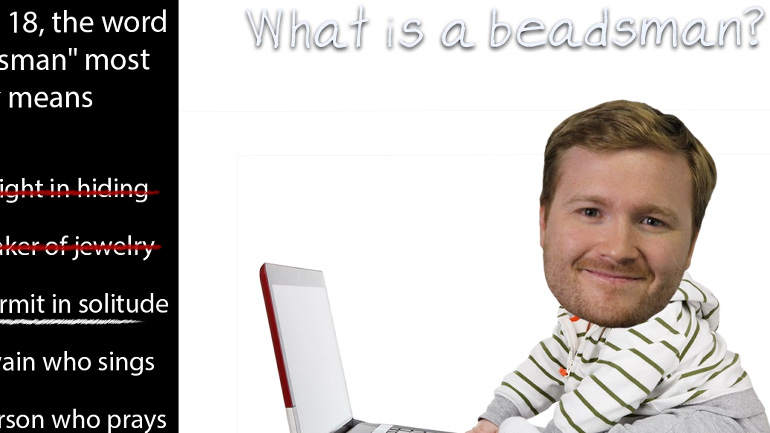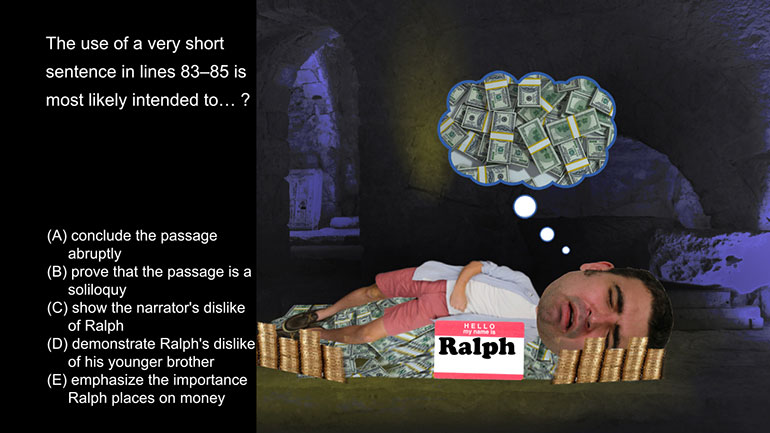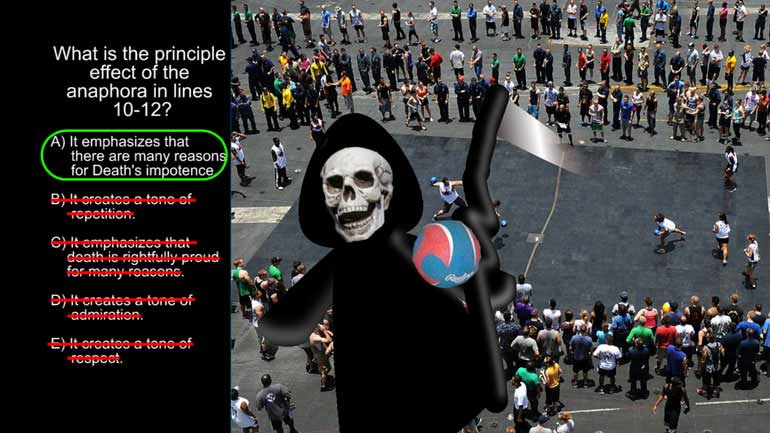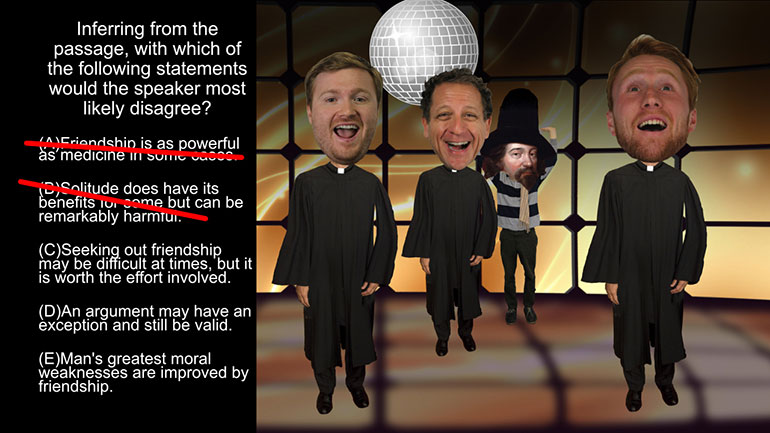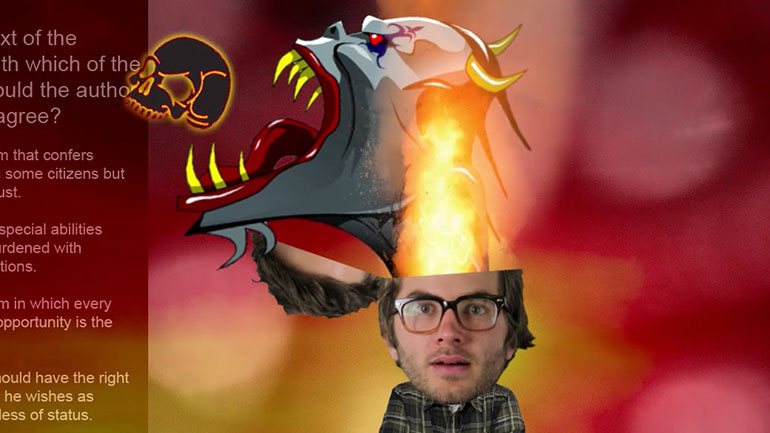ShmoopTube
Where Monty Python meets your 10th grade teacher.
Search Thousands of Shmoop Videos
Playlist AP® English Literature and Composition: Voice and Tone 16 videos
AP English Literature and Composition 1.5 Passage Drill 7. In lines 34 through 37, what technique does the author use to describe the family's...
AP English Literature and Composition 1.10 Passage Drill 3. What tone shift is indicated by line 49?
AP English Literature and Composition 1.10 Passage Drill 4. Which of the following best describes the tone of the poem as a whole?
AP English Literature and Composition 1.5 Passage Drill 7 209 Views
Share It!
Description:
AP English Literature and Composition 1.5 Passage Drill 7. In lines 34 through 37, what technique does the author use to describe the family's desperate situation?
Transcript
- 00:04
You can't handle the Shmoop!
- 00:08
This passage wants you to hit pause and read over it one more time. Hey, don't look at
- 00:13
us. It's the passage that's needy.
- 00:44
In lines 33 through 37, what technique does the author use to describe the family's desperate situation?
- 00:51
And here are the potential answers...
Full Transcript
- 00:55
We've got another "technique" question on our hands here...
- 00:58
...which means we're going to need to know the meaning of terms like "paradox," "personification,"
- 01:02
"hyperbole," "metaphor" and "understatement."
- 01:07
If we don't, we're going to be in more trouble than a traitor caught delivering government secrets to the enemy.
- 01:17
Let's check out the portion of the passage in question...
- 01:20
..."impressed with the necessity of making some provision for his family, was seriously
- 01:24
revolving in his mind a little commercial speculation of insuring his life next quarter-day,
- 01:29
and then falling from the top of the Monument by accident."
- 01:34
A paradox is a statement that contradicts itself, but is still kinda true—that doesn't
- 01:42
apply here.
- 01:44
It's also not a personification of the Monument as a killer. It would be Mr. Nickleby doing
- 01:50
the killing, as he'd be throwing himself off the Monument.
- 01:55
You're not going to arrest Brutus' knife for the murder of Caesar, are you?
- 02:00
It's not a hyperbolic statement about the necessity of life insurance...
- 02:04
...life insurance is mentioned but it isn't the focus here.
- 02:07
It's the Nickleby's dire financial situation that's the star of the show.
- 02:11
And it's not a metaphor, because there's nothing here that stands for something else.
- 02:15
So it's got to be E, an understatement about committing suicide.
- 02:19
By comparing the casual consideration of committing suicide for insurance money to any other commercial speculation...
- 02:26
...the author is making an understatement about the gravity of such ponderings.
- 02:30
However, it's nothing compared to the gravity involved in throwing yourself off a monument.
Related Videos
AP English Literature and Composition 1.2 Passage Drill 4. As which of the following is the object being personified?
AP English Literature and Composition 1.4 Passage Drill 3. How is Burne's view of pacifism best characterized in lines 57 through 67?
AP English Literature and Composition 1.6 Passage Drill 5. Death is primarily characterized as what?
AP English Literature and Composition 1.7 Passage Drill 5. Which line indicates the turn or shift in this poem?
AP English Literature and Composition 1.9 Passage Drill 4. Lines 32-34 are best understood to mean what?


